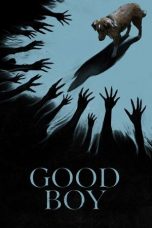Captivity (2007) Movie Review: A Torture Thriller That Fails to Deliver
Captivity, directed by Roland Joffé and released in 2007, is a horror-thriller that attempts to capitalize on the “torture porn” subgenre popularized by films like Saw and Hostel. Starring Elisha Cuthbert and Daniel Gillies, the film explores themes of abduction, psychological torment, and survival. Despite its promising premise, Captivity has been widely panned by critics and audiences alike for its lackluster execution and gratuitous violence.
Plot Overview
The story follows Jennifer Tree (Elisha Cuthbert), a famous fashion model who is drugged and kidnapped during a night out in New York City. She wakes up in a cellar, confined to a small, dark room filled with surveillance cameras. Her captor subjects her to a series of psychological and physical tortures, designed to break her spirit and sanity.
As Jennifer endures these horrors, she discovers she is not alone in captivity. She encounters Gary (Daniel Gillies), another prisoner who claims to have been held captive for some time. Together, they try to devise a plan to escape their tormentor’s clutches. However, as the plot unfolds, the true nature of their captivity and their captor’s intentions are revealed, leading to a twist that questions trust and survival instincts.
Performances
Elisha Cuthbert, known for her roles in 24 and The Girl Next Door, delivers a commendable performance as Jennifer Tree. She effectively conveys the fear, desperation, and resilience of a woman fighting for her life. Daniel Gillies, as Gary, provides a solid supporting performance, although his character is not as well-developed as Jennifer. Despite their efforts, the script does not give them much depth to work with, and their characters often feel one-dimensional.
Direction and Cinematography
Roland Joffé, an acclaimed director known for The Killing Fields and The Mission, seems out of his element with Captivity. The film’s direction lacks the nuance and sophistication of his earlier works. The cinematography by Daniel Pearl does create a claustrophobic and oppressive atmosphere, which is appropriate for the film’s setting. However, the excessive use of close-ups and rapid cuts can be disorienting and detract from the overall viewing experience.
Script and Execution
The screenplay, written by Larry Cohen and Joseph Tura, suffers from a lack of originality and coherence. The plot is predictable, relying heavily on familiar horror tropes and shock value rather than genuine suspense or character development. The dialogue is often stilted and cliché, failing to elevate the narrative beyond its base level of torture and gore. The film’s pacing is uneven, with prolonged scenes of torture that do little to advance the story or build tension.
Themes and Symbolism
Captivity attempts to explore themes of psychological manipulation, trust, and the human will to survive. However, these themes are overshadowed by the film’s gratuitous violence and lack of subtlety. The use of captivity as a metaphor for personal and emotional entrapment is underdeveloped, and the film’s attempts at deeper symbolism fall flat.
Critical Reception
Captivity has been widely criticized for its exploitative nature and lack of substance. Critics have pointed out its reliance on graphic violence and its failure to deliver a compelling or coherent narrative. The film’s marketing campaign, which included controversial posters depicting scenes of abduction and torture, also drew negative attention and backlash. Overall, Captivity has been deemed a low point in the careers of its cast and crew.
Streaming Services and Availability
For those interested in watching Captivity, the film is available for streaming on various platforms. In the United States, it can be rented or purchased on Amazon Prime Video, Google Play Movies, YouTube, and iTunes. These options provide access for viewers who wish to judge the film for themselves.
Conclusion
Captivity is a film that fails to live up to its potential as a psychological thriller. Despite a strong performance by Elisha Cuthbert, the film’s lack of originality, coherence, and reliance on gratuitous violence make it a disappointing entry in the horror genre. The direction, script, and execution all fall short of creating a compelling or engaging narrative.
For fans of the horror-thriller genre, Captivity may offer some moments of tension and fear, but it ultimately falls flat as a memorable or impactful film. Its blend of torture and survival fails to deliver the emotional depth or suspense that could have made it a standout in its genre.
















